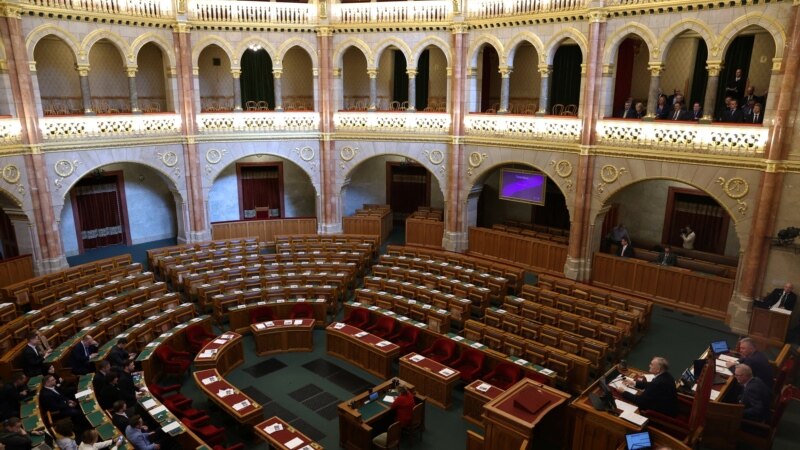The U.S. envoy to Budapest along with ambassadors from some other NATO allies including Denmark and Poland attended the Hungarian parliament on Monday in a surprise show of pressure on Budapest to approve Sweden’s bid to join the alliance.
The extraordinary meeting of parliament was called by the opposition to vote on ratification on Monday, but lawmakers from his ruling Fidesz party went ahead with their boycott of the session and now ratification will be further delayed.
Hungary is the only NATO country not to ratify Stockholm’s membership application, a process that requires the backing of all members, souring relations with the United States and raising concerns among its allies.
“Its extremely unpleasant that up to today, they [Fidesz] have been blocking Sweden’s NATO accession,” Mate Kanasz-Nagy, lawmaker of the opposition LMP party told parliament, his words echoing in the half-empty room as the envoys sat in the public gallery.
“He [Orban] wants to favor [Russian President] Putin, thus breaking the unity of NATO,” Agnes Vadai, lawmaker of the opposition Democratic Coalition said.
The ambassadors did not make any remarks before entering parliament but are expected to comment after the session.
Sweden’s NATO bid could be ratified when Hungary’s parliament reconvenes for a normal session, the Fidesz party’s parliamentary group said earlier on Monday, adding that first it expects a visit by the Swedish prime minister to Budapest.
Parliament will reconvene after the winter break in late February.
“If this is an important issue for the Swedes, then obviously the Swedish prime minister will come to Budapest,” Fidesz said in an emailed reply to Reuters questions.
The office of Swedish Prime Minister Ulf Kristersson and his foreign minister did not immediately reply to requests for comment.
Hungarian Foreign Minister Peter Szijjarto said late on Friday that it would be “fair” if Kristersson visited Budapest before the ratification, just as the Swedish leader had also gone to Turkey before the Turkish ratification.
Prime Minister Viktor Orban, who has better ties with Russia than other EU states and most NATO members, says his government backs Sweden joining the alliance but the relevant bill has been stranded in parliament since mid-2022.

